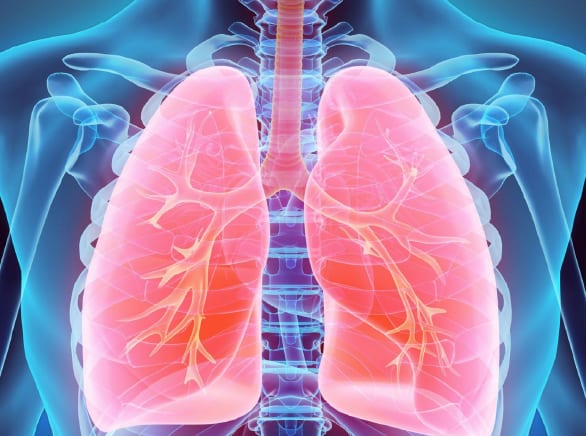Lung
Screening
Annual lung cancer screening can save your life.
Even if you have no symptoms or signs of lung cancer (and almost 100% of the time, there are no symptoms until its later stages), your age and smoking history can give you a high risk of acquiring the disease. Smoking is responsible for about 85% of lung cancer diagnoses. The risk also increases with age. Quitting smoking and eliminating your exposure to tobacco are the only ways to lower your risk.
In general, adults 55 and over who are current heavy smokers (one to two packs per day) or have quit within the past 15 years should be screened every year with a test called low dose computed tomography, also called a low-dose CT scan or LDCT.


Annual lung cancer screening can save your life.
Even if you have no symptoms or signs of lung cancer (and almost 100% of the time, there are no symptoms until its later stages), your age and smoking history can give you a high risk of acquiring the disease. Smoking is responsible for about 85% of lung cancer diagnoses. The risk also increases with age. Quitting smoking and eliminating your exposure to tobacco are the only ways to lower your risk.
In general, adults 55 and over who are current heavy smokers (one to two packs per day) or have quit within the past 15 years should be screened every year with a test called low dose computed tomography, also called a low-dose CT scan or LDCT.


Lung cancer is the leading cause of cancer death in the United States. The most common type— non-small cell lung cancer—can sometimes be cured if it is found early enough. Treatment involves surgery to remove the part of the lung that has cancer. Unfortunately, about 90% of the people who have lung cancer die from the disease, in part because it is often not found until the cancer
is at an advanced stage.
That’s why lung cancer screening is so important if you are in the high-risk group (heavy smoker or former heavy smoker who quit in the past 15 years and is currently 55 or older). During a low-dose CT scan, an X-ray machine scans the body and uses low doses of radiation to take a series of detailed pictures of the lungs. Low-dose CT scans more accurately identify early stage cancer than do other screening tests. Many lung cancer deaths can be prevented by screening high-risk people every year.
Sometimes, the LDCT produces a “false positive,” indicating a person has cancer when they don’t. For that reason, never be alarmed if you get a positive result. Our Cape Coral & Fort Myers physician will take steps to ensure the ultimate diagnosis is correct. Whether you get screened for lung cancer is up to you. But you need to be in good health and not have had any recent radiation treatments, including X-rays or CT scans.
DO YOU QUALIFY FOR SCREENINGS?
ANSWER SIX SIMPLE QUESTIONS TO FIND OUT.
1. Are you between ages 55 and 80?
YesNo
2. Are you now or have you ever been a smoker?
YesNo
3. Have you smoked as much as a pack or two a day for 15–30 years?
YesNo
4. Have you quit smoking in the last 15 years?
YesNo
5. Are you currently in good health?
YesNo
6. Have you had an X-ray or low-dose CT (LCDT) scan recently?
YesNo
You are a good candidate for a lung cancer screening. To be certain, please contact us to schedule an appointment.
You are likely not a candidate for a lung cancer screening. To be certain, please contact us to schedule an appointment.
You are a good candidate for a lung cancer screening. Due to your current health
and your recent X-ray or CT scan, we may want to wait before scheduling it.
Please call at 239-574-2644 and speak to one of our physicians.
SCHEDULE AN APPOINTMENT TODAY!
Call us at 239.574.2644 to schedule your appointment today.
Quick Answers
Should you need fast relief or want to know more about your condition, you may find answers that fit your situation on our Facebook page and by visiting these resources.

